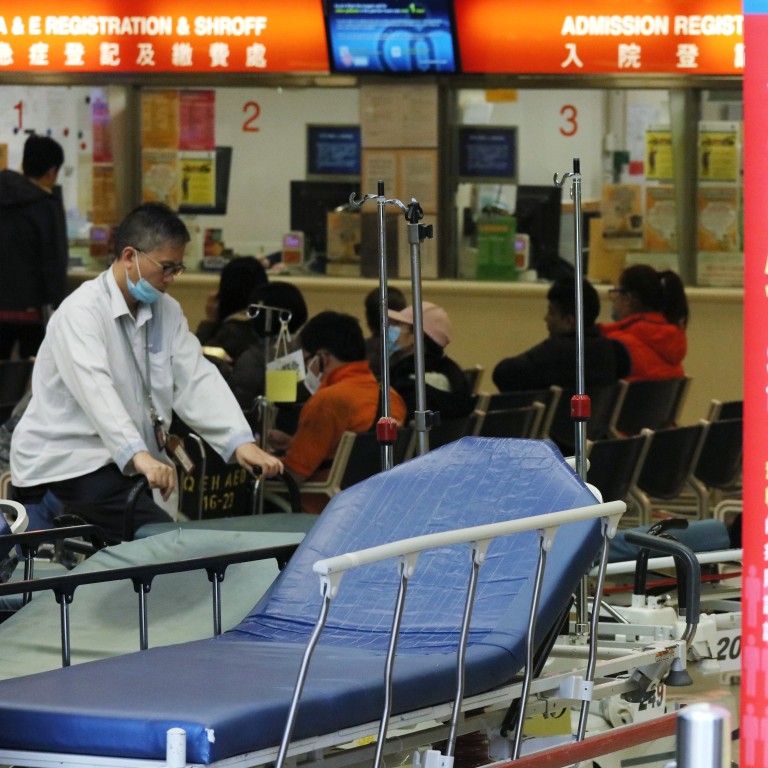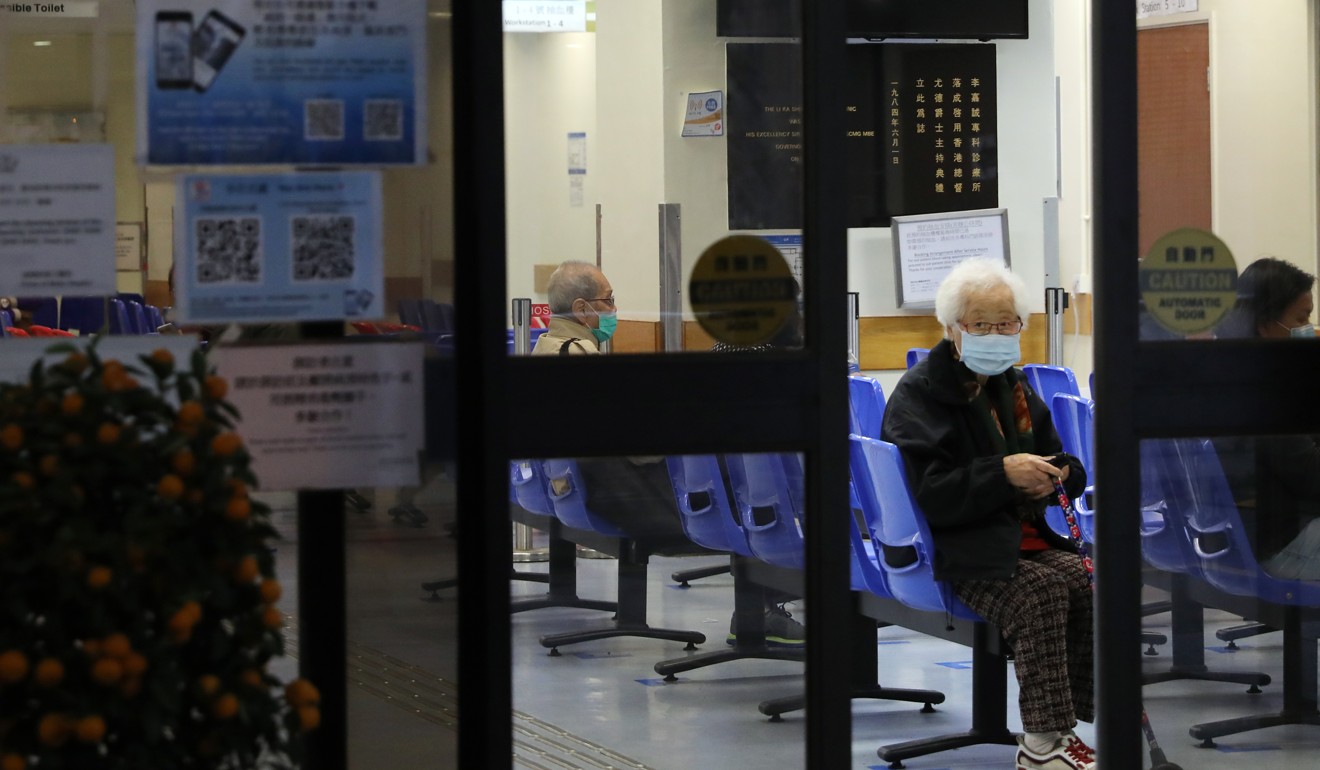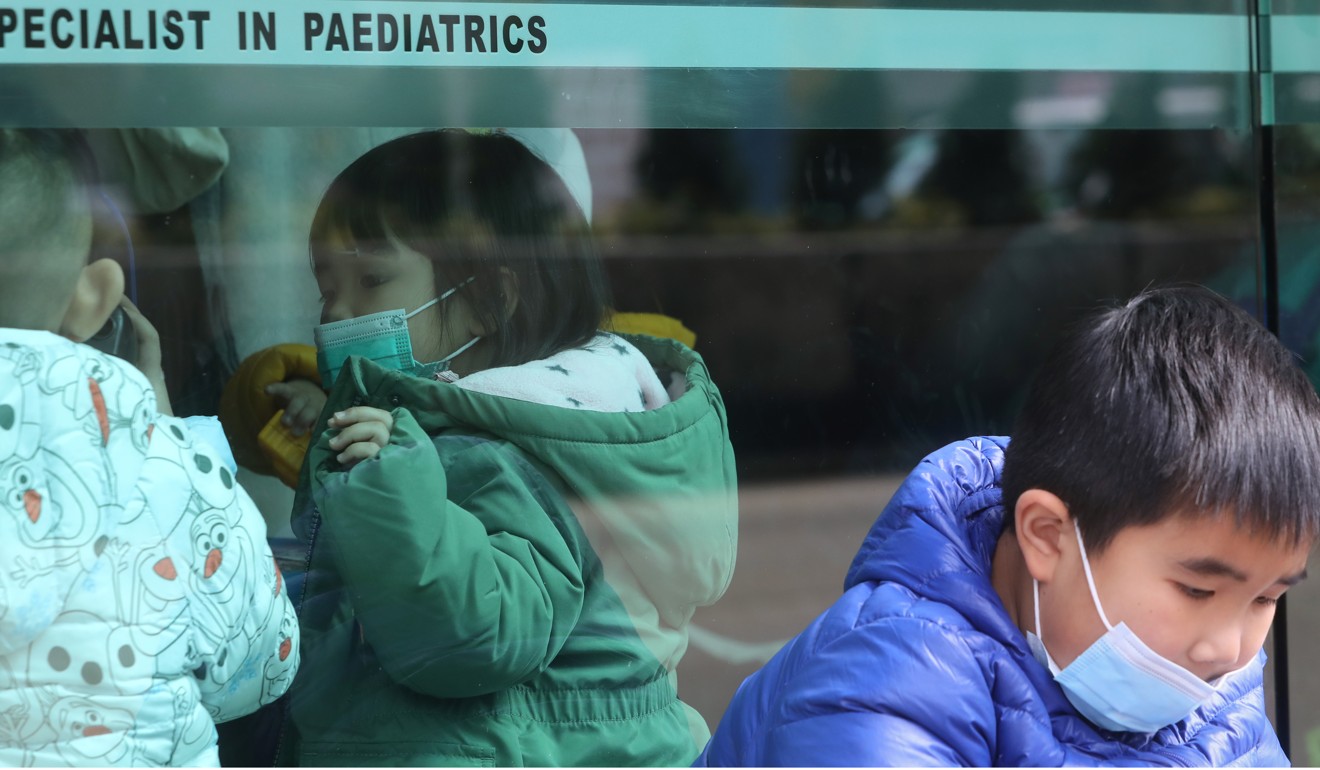
Hong Kong enters winter peak flu season week earlier than last year with health officials urging elderly and children to get shots
- Centre for Health Protection says 960,000 doses of vaccine were administered by December 23
- Children and adults aged 50 to 64 years have higher risk of infection during seasons dominated by H1 strain, the main type this year
Influenza activity is expected to increase in the coming weeks as the city has entered the winter peak flu season, the health authorities have warned.
Dr Wong Ka-hing, controller of the Centre for Health Protection, announced the start of the winter influenza season on Wednesday, around a week earlier than last year.
According to Wong, 960,000 doses of seasonal flu vaccine were administered by December 23, a more than 50 per cent increase compared with the same period last year. Almost 40 per cent of those who got jabs were children under 12 years old.
The centre said the circulating viruses in the past four weeks were mainly influenza A (H1), accounting for 80 per cent of cases, and influenza A (H3), at around 20 per cent. Influenza B activity was very low.

Children and adults aged 50 to 64 years have a higher risk of infection during seasons dominated by the H1 strain, past data shows.
According to the centre, 341 people were affected by outbreaks of institutional flu-like illness in the past four weeks. There were 39 outbreaks in kindergartens, childcare centres and primary schools, and six in residential care homes for the elderly.
More people getting jabs ahead of winter flu peak season
“We urge the public, especially children and the elderly, to get vaccinated as soon as possible,” Wong said, adding it usually took around two weeks for the body to develop antibodies after vaccination.
He said the winter peak season generally lasted around 12 to 16 weeks.
Respiratory specimens from public hospitals that tested positive for the flu virus increased to 14 per cent last week, above the baseline threshold of 10.7 per cent.
A Hospital Authority spokesman said more infection control measures would be enforced in public hospitals during the winter flu season including enhanced hygiene requirements.

The authority had arranged for health care staff to receive flu shots since October to lower the risk of cross-infection. So far, around 30,000 employees had received vaccines.
What you need to know about this year’s unusual winter flu surge
Meanwhile, the city’s public hospitals have been inundated. According to figures released by the authority on Wednesday, the overall inpatient bed occupancy rate was 109 per cent, meaning temporary beds had to be laid out in corridors or between beds.
The most congested hospitals were United Christian Hospital in Kowloon East with 124 per cent occupancy, followed by Queen Elizabeth Hospital (120 per cent) and Tseung Kwan O Hospital (119 per cent). Only Queen Mary and Yan Chai hospitals had occupancy rates below 100 per cent.
